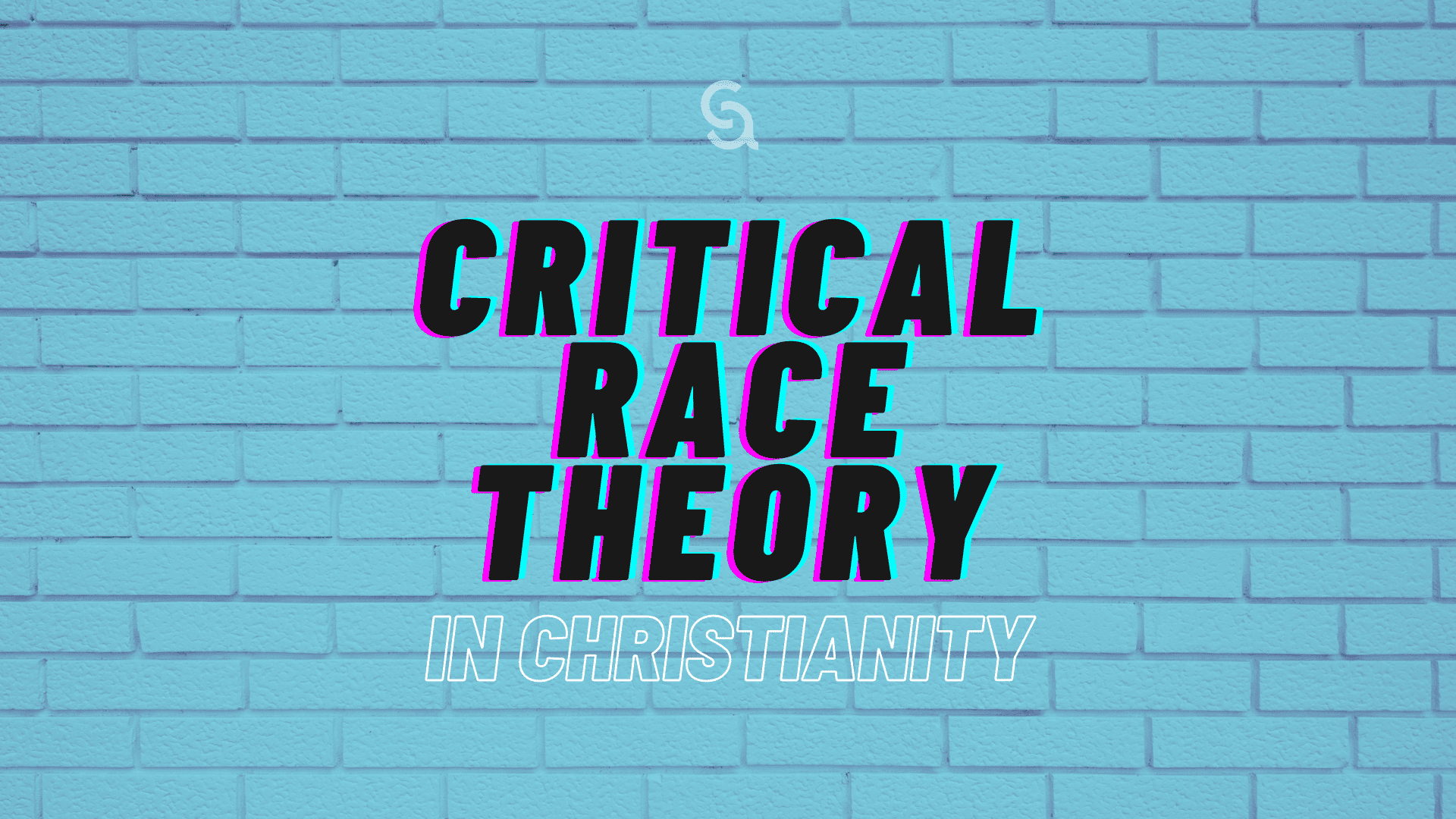 To foster racial reconciliation, structural reform, and constructive dialogue, I present here a framework of Critical Race Theory in Christianity.
To foster racial reconciliation, structural reform, and constructive dialogue, I present here a framework of Critical Race Theory in Christianity.
1. Community Cultural Wealth and Social Justice. From a biblical vantage point, every ethnic group of the world possesses distinct, God-given, cultural treasure/wealth. To use the language of Chicana educational theorist Tara Yosso, each culture possesses “cultural capital.” The inherent and eternal value of the various national cultures of the world is described in Revelation 21: 22-27 (NRSV):
I saw no temple in the city, for its temple is the Lord God the Almighty and the Lamb. And the city has no need of sun or moon to shine on it, for the glory of God is its light, and its lamp is the Lamb. The nations will walk by its light, and the kings of the earth will bring their glory into it. Its gates will never be shut by day—and there will be no night there. People will bring into it the glory and the honor of the nations. But nothing unclean will enter it, nor anyone who practices abomination or falsehood, but only those who are written in the Lamb’s book of life.
This passage states that the “glory and honor of the nations” will be brought into the New Jerusalem for eternity. What is this “glory and honor” that John is speaking of? It is interesting to note that most evangelical Bible commentaries completely overlook this text. The word “glory” which is used in this passage can also be translated as “treasure” or “wealth” of the nations. Surely John is not describing literal currency or national government coffers. I believe that he is talking about the cultural treasure or wealth of the different ethnic groups of the world. This cultural treasure includes food, music, dance, literature, architecture, etc., as well as the unique cultural personalities of the world.
One important goal of CRT in Christianity is to employ multi-disciplinary theological tools to highlight the God-given cultural wealth of marginalized communities, and to leverage community cultural wealth towards the promotion of social justice and minority empowerment.
2. Voice of Color Thesis. Flowing from our unique God-given cultural treasuries and our peculiar histories and experiences of oppression in the United States, we Christians of color form distinctive parts of the Body of Christ and uniquely reflect the image of God (1 Corinthians 12: 12-14, 18-19; Romans 12: 4-5; Genesis 1: 26-28). As such, one important role we serve is as communicators of racial issues to our white sisters and brothers of the Body of Christ who are unlikely to know about racial injustice from first-hand experience. It is necessary to state this clearly because our voices have so often been dismissed. Our perspective is not better than others, yet, flowing from our experience as unique children of God, it is distinct. To reject our perspective is akin to the eye saying to the hand, “I don’t need you!” or the head telling the feet, “I don’t need you!” (Romans 12: 21). At the same time, Christians of color cannot reject membership and participation in the Body of Christ. Although sometimes tempting, it is not an option. To do so would be like a foot proclaiming, “Because I am not a hand, I do not belong to the body” or an ear saying, “Because I am not an eye, I do not belong to the body “(Romans 12: 15-16). No, God has placed us each in the Body just where He wants us to be (1 Corinthians 12:18). We belong to one another and need each other in order to “reach unity in the faith and in the knowledge of the Son of God and become mature, attaining to the whole measure of the fullness of Christ.” (Romans 12: 5; 1 Corinthians 12:21; Ephesians 4: 13).
3. Racism is Ordinary. Because of sinful human nature, racism is ordinary (Genesis 8: 21; Psalm 14: 2-3; Psalm 51:5; Romans 3: 23-24). Racism and ethnocentrism is the normal state of affairs for human beings. Left to its own devices, sinful humanity, through the means of physical and institutional violence, divides the various ethnic cultures of the world into categories of privilege and exclusion. This leads to the social construction of privileged and unprivileged “races,” and the inequitable distribution of God-given socio-economic, cultural, and political resources. Such discrimination violates the manifest will of God as reflected in more than 2,000 verses of Scripture (Matthew 25: 31-46; Luke 4: 18-19; Luke 6: 20-26; Galatians 3: 28-29; Acts 10: 34-35; Isaiah 58: 3-12; Psalm 140: 12; Psalm 146:9).
4. Christianity, Whiteness, and Colonization. During the era of European global expansion, colonial regimes created the legal category of “whiteness” as a means of divvying out socio-economic and political privilege to those of European origin and excluding people of color from access to these same privileges. From the 15th through 20th centuries, Christianity became entangled with various colonial and neo-colonial projects of whiteness. Despite many biblical admonitions to the contrary, Christianity became racialized as the civil religion and religious property of whites. This destroyed the witness of global Christianity to a watching world.
5. Disentanglement and Multi-Disciplinary Methods. Through the implementation of multi-disciplinary theological tools, a second major goal of CRT in Christianity is to disentangle Christianity from its recent colonial heritage and guard it from neo-colonial racial projects of any form. A further goal is to highlight the historical and contemporary efforts of those such as Bartolomé de Las Casas, Sor Juana Inés de la Cruz, Toyohiko Kagawa, Gordon Hirabayashi, César Chávez, Martin Luther King, Jr., and Alexia Salvatierra, who have resisted the historical and contemporary racist hijacking of Christianity. As a multi-disciplinary project, moreover, CRT in Christianity encourages the development of multi-disciplinary theological methods involving history, law, literature, sociology, economics, and other disciplines of the humanities and social sciences.
6. The Beloved Community. The goal of Critical Race Theory in Christianity is the Beloved Community envisioned by Scripture and the biblical witness of Rev. Dr. Martin Luther King, Jr (Revelation 5:9-10, 7:9-10; Galatians 3: 28-29; John 10: 16; Ephesians 2: 14-21; Colossians 1: 15-20; Acts 10: 34-35). Done in the spirit of love and the empowerment of Jesus Christ, the ultimate goal of CRT in Christianity is the reconciliation of all people from every cultural and ethnic background. CRT in Christianity celebrates and embraces the diverse, God-given cultures of the world, but it is not ethno-centric. It seeks the shalom and reconciliation of all of humanity in Jesus Christ. This unifying and hopeful eschatological vision represents a distinct contribution to the broader field of Critical Race Theory.
Conclusion
Julio was a non-traditional student in my introductory course on Chicana/o history, identity, and culture. This course provides a historical overview of Mexican American history and explores such topics as the racial caste system of colonial Mexico, Manifest Destiny and the U.S.-Mexico War, Latino segregation and the famous case of Mendez v. Westminster, the Zoot Suit Riots, the East L.A. blowouts, César Chávez and the farmworkers movement, educational inequality, and undocumented immigration. Like many Latina/o students, Julio was drawn to the class because he was curious about his own cultural heritage and the various social justice issues addressed in the course.
Before coming to UCLA, Julio was a gang member for many years in South L.A. and spent hard time as an inmate at Pelican Bay, one of the toughest prisons in the nation. After his time of incarceration and rehabilitation, Julio attended East Los Angeles Community College and eventually transferred to UCLA. As a non-traditional student, he struggled both academically and financially. On New Year’s Eve, two weeks after the completion of my class, Julio searched for my email address online to tell me the bad news that he was going to quit school. Things had become too hard. As he was doing his Google search, he stumbled across Jesus for Revolutionaries. Since it was free, he downloaded it onto his computer and spent the next six hours reading and engaging with it. In the early hours of New Year’s Day, Julio committed his life to God, and, through the spiritual fortitude he received from Jesus, he decided to continue his education at UCLA.
Julio’s story reflects the non-traditional educational trajectory and urban life experience of thousands—perhaps millions—of students of color throughout the nation. They pursue their university education not just to make money and pursue the “American Dream,” but because they want to understand the structural inequalities which shape their communities and seek a profession which will equip them to bring about transformational change. Just as importantly, they desire a religious faith which will empower them to become agents of justice and social renewal. In the words of another student, “I don’t want to just do social justice activities on my own all the time. I have this void in my heart when I do that. I want to know that God is with me and that I’m fulfilling God’s calling and vocation.”
As this 3-part blog series has attempted to show, students of color like Julio live their lives in a spiritual borderlands. In their Ethnic Studies courses they gain vital knowledge about social injustice and structural inequality, but they are also often disparaged about the Christian faith of their abuelas, mothers, fathers, and comunidad. On the other hand, in most Christian spaces, they face tremendous pressure to conform to a white, middle class, American imaginary of faith, history, politics, and society. This is too much for many to handle, and, like Rosa of our earlier vignette, this quandary jettisons them into a downward emotional and spiritual spiral.
Drawing from my own experience in the Christian-Ethnic Studies borderlands, one goal of this blog series is to promote discussion about the role of religion within my own academic discipline of Chicana/o Studies. I hope to nurture more religious toleration in our classes, curriculum, research agendas, and professional spaces. A myriad of viewpoints about religion is crucial to the academic mission of the university. We need to have objective, critical conversations about the negative, indeed devastating, impact which the institutions of Christianity have had upon our communities of color. That is vitally important. At the same time, however, it is impossible to understand the experience of the Latina/o community without also considering the positive role which religion has played, and continues to play, in our families, communities, and movements of social justice. I believe we do our students a disservice if we do the former, but neglect the latter. Furthermore, the unbalanced disparagement of the spiritual lineage of our families and communities creates an intolerable hostile campus climate and stifles academic freedom of expression.
A second goal of this essay is to raise critical consciousness among Christian churches and institutions of higher education. Please stop trying to make us white. I know this is not what you are trying to do, but this is what you are doing nonetheless. Please take off your “color blind” lens and see things from the perspective of millions of Christians of color in the United States. We are your sisters and brothers. Our deep concerns for structural change in education, politics, housing, healthcare, policing, mass incarceration, and voting are not going to go away because a white politician or conservative political movement forms a fragile alliance with the evangelical Christian community, or cries, even louder, that racism does not exist. Racial inequality is our reality. God is our God, too, and we know that Jesus has seen our affliction and given heed to our cry. He is aware of our sufferings and He is coming down to deliver us (Exodus 3:7-8; Luke 4: 18-19).
Lastly, I have proposed Critical Race Theory in Christianity as one framework to help advance a larger discussion of Race and the Church. Christianity has been abused historically as a powerful earthly institution of racial oppression, but it has also inspired countless social justice movements as a source of spiritual capital for the liberation of oppressed peoples. It is my prayer that CRT in Christianity can facilitate the disentanglement of Christianity with its colonial legacy and advance the biblical vision of racial reconciliation and liberatory praxis.
Author’s note: This post concludes a three-part series on Critical Race Theory in Christianity. This series first appeared in peer reviewed article format as part of the ChristianityNext Journal: Asian American Christianity & Dones and Nones by Young Lee Hertig.
 Rev. Dr. Robert Chao Romero is “Asian-Latino,” and has been a professor of Chicana/o Studies and Asian American Studies at UCLA since 2005. He received his Ph.D. from UCLA in Latin American History and his Juris Doctor from U.C. Berkeley, and is also an attorney. Romero has published 15 academic books and articles on issues of race, immigration, history, education, and religion, and received the Latina/o Studies book award from the international Latin American Studies Association. He is also the author of Brown Church: Five Centuries of Latina/o Social Justice, Theology, and Identity. Romero is a former Ford Foundation and U.C. President’s Postdoctoral Fellow, as well as a recipient of the Louisville Institute’s Sabbatical Grant for Researchers.
Rev. Dr. Robert Chao Romero is “Asian-Latino,” and has been a professor of Chicana/o Studies and Asian American Studies at UCLA since 2005. He received his Ph.D. from UCLA in Latin American History and his Juris Doctor from U.C. Berkeley, and is also an attorney. Romero has published 15 academic books and articles on issues of race, immigration, history, education, and religion, and received the Latina/o Studies book award from the international Latin American Studies Association. He is also the author of Brown Church: Five Centuries of Latina/o Social Justice, Theology, and Identity. Romero is a former Ford Foundation and U.C. President’s Postdoctoral Fellow, as well as a recipient of the Louisville Institute’s Sabbatical Grant for Researchers.
Romero is an ordained pastor. Together with his wife, Erica, he is the co-founder of Jesus 4 Revolutionaries, a Christian ministry to activists, and a board member of the Matthew 25 Movement in Southern California. This article was originally published on Romero’s blog and is based upon an article first published in the Christianity Next Journal in Winter 2017. It is reproduced here by kind permission of the author.
- Read “The Christian Ethnics Studies Borderlands,” part 1 in this series.
- Read “An Introduction to Critical Race Theory,” part 2 in this series.


